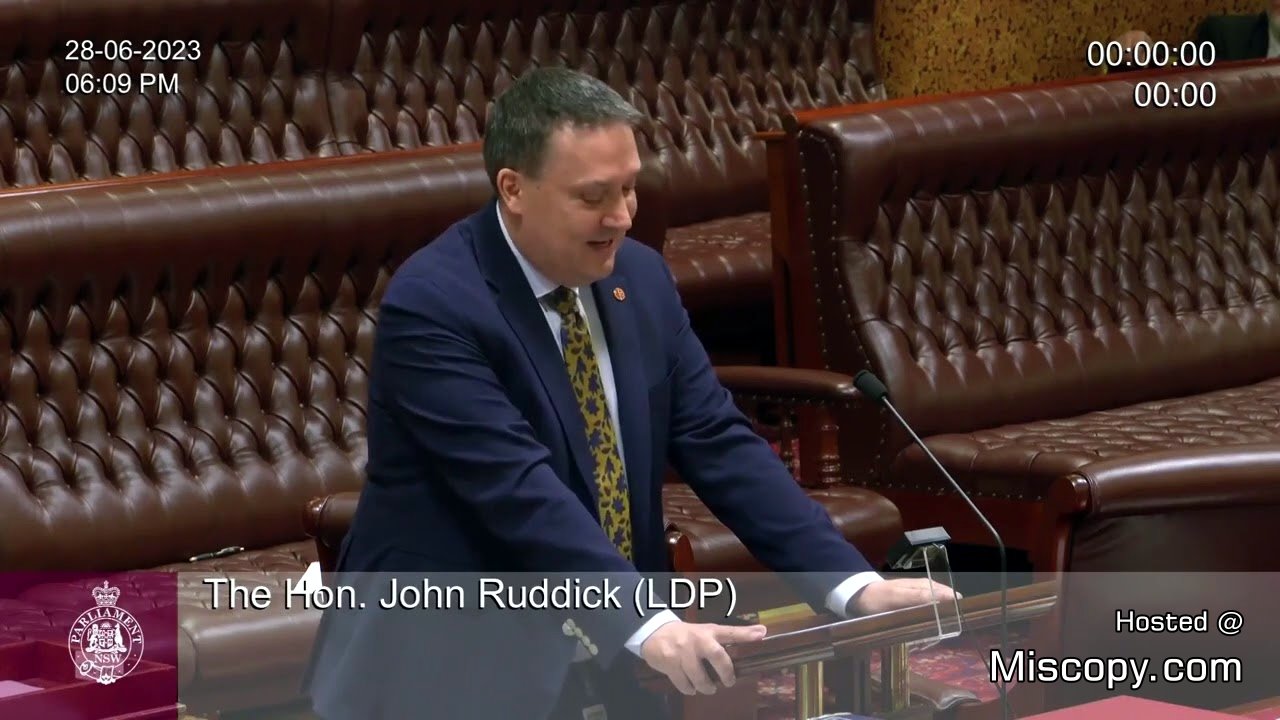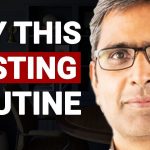YouTube has made the decision to ban an Australian parliament speech, marking the first time in history that it has done so. The speech, given by the Honorable John Ruddick, criticizes the authoritarian measures taken by the state and federal liberal governments during the COVID-19 pandemic.
Ruddick questions the need for lockdowns and mandatory vaccinations and highlights the delayed response from the Liberal Party in speaking out against the government’s actions. He also discusses various topics including the founding of the Red Cross, concerns about the arms buildup in the Asia-Pacific region, and the potential dangers of big government.
Additionally, he questions the validity of the global warming narrative and proposes the idea of a government-free society. The speech concludes with Ruddick expressing his belief in maximizing human potential and inviting his parliamentary colleagues to join the libertarian movement.
YouTube banned the video after it was published on the Australian government channel, citing “Content Violation“.
In the beginning of his speech, the Honorable John Ruddick reflects on his relationship with the New South Wales Liberal Party and discusses his decision to join the Liberal Democrats. He criticizes the authoritarian measures taken by state and federal liberal governments during the COVID-19 pandemic, referring to them as an overreaction to a “bad flu.” He questions the need for lockdowns and mandatory vaccinations, citing Sweden’s approach of trust in its citizens. He also highlights the delayed response of the Liberal Party members in speaking out against the government’s actions. Additionally, he mentions an article from the New York Times that claims no one had caught COVID-19 in an outdoor environment.
At 00:05:00, the speaker expresses their disappointment with several aspects of the Australian government’s response to the COVID-19 pandemic. They criticize the implementation of lockdowns and the push for multiple vaccine injections, noting that there has been an increase in excess deaths since the vaccine rollout. The speaker also highlights the banning of Ivermectin, a drug that has shown potential in treating COVID-19, and suggests a conflict of interest in the influence of pharmaceutical companies over the Therapeutic Goods Administration. Additionally, they criticize the liberal party for the increase in government debt and their surrender to pressure for a net-zero carbon economy. Despite these disappointments, the speaker expresses hope for budget repair under the new government.
At 00:10:00 of the video, the speaker discusses the principles of libertarianism and highlights Switzerland as a successful example. They emphasize the belief in limited government, the inherent morality of capitalism, and the negative consequences of big government. They praise Switzerland for its low government intrusion, decentralized power, and high per capita income. The speaker also mentions Switzerland’s healthcare system, low crime rate with high firearm ownership, and its tradition of staying out of wars. The video excerpt showcases the speaker’s admiration for the Swiss model and its alignment with libertarian ideals.
At 00:15:00 John Ruddick discusses various topics including the founding of the Red Cross by a Christian businessman, concerns about the arms buildup in the Asia-Pacific region, the potential for a catastrophic war, the importance of free speech, the dangers of big government, and the impact of mass delusions. He also shares the story of William Buckley, an escaped convict who was adopted by an Aboriginal tribe and witnessed a mass delusion among the tribes. The member emphasizes the need for de-escalation and the separation of church and state to prevent the magnification of delusions by state power.
At 00:20:00 the politician questions the validity of the global warming narrative and the motives behind it. He suggests that the predictions of rising temperatures and shrinking ice caps have not materialized, and natural disasters are just part of natural cycles. He also criticizes the shift from global warming to climate change and the hostility towards nuclear energy. The politician questions the qualifications of prominent figures like Al Gore and Greta Thunberg in the field and raises concerns about the commercial and political interests at play. He argues that the environmental movement has been hijacked by a money-making scheme and highlights the need to focus on animal welfare and the protection of endangered species and native forests.
At 00:25:00 the parliament member discusses the idea of a government-free society and the potential benefits it could bring. He argues that a society based on voluntary interaction could be more humane, safe, vibrant, diverse, and successful. He suggests gradually phasing out government over decades with democratic consent and highlights the issues of legalized coercion and the excessive size of government today. He proposes several initial steps towards a zero percent government, including abolishing middle-class welfare, adopting a Swiss-style healthcare system, and replacing the Department of Education with a school voucher system. He also suggests privatizing the police and court system, while acknowledging the need for finding effective ways to care for the poor. The speech concludes by emphasizing the superiority of innovative and efficient solutions, such as Uber, over heavily regulated taxes, and highlights other government services that anarcho-capitalists believe can deliver an upgrade in quality service.
At 00:30:00 the speaker expresses his belief in maximizing human potential and reaching for other worlds. They argue for a government-free, voluntary-based society as a means to tap into humanity’s highest potential. The speaker also highlights the historical impact of libertarianism, such as its articulation of the benefits of free enterprise and its opposition to socialism and Keynesianism. They mention the libertarian stance on gay marriage, opposition to Middle Eastern Wars, and support for minorities being bullied by the state and popular culture. The speaker concludes by inviting their parliamentary colleagues to join the libertarian movement and complete a membership form.





Leave a Reply